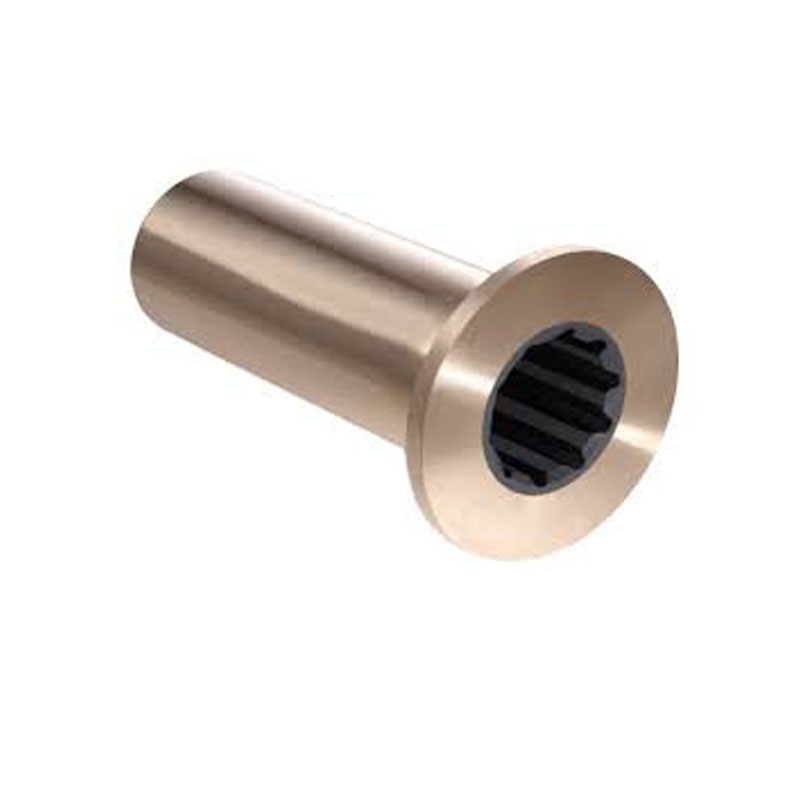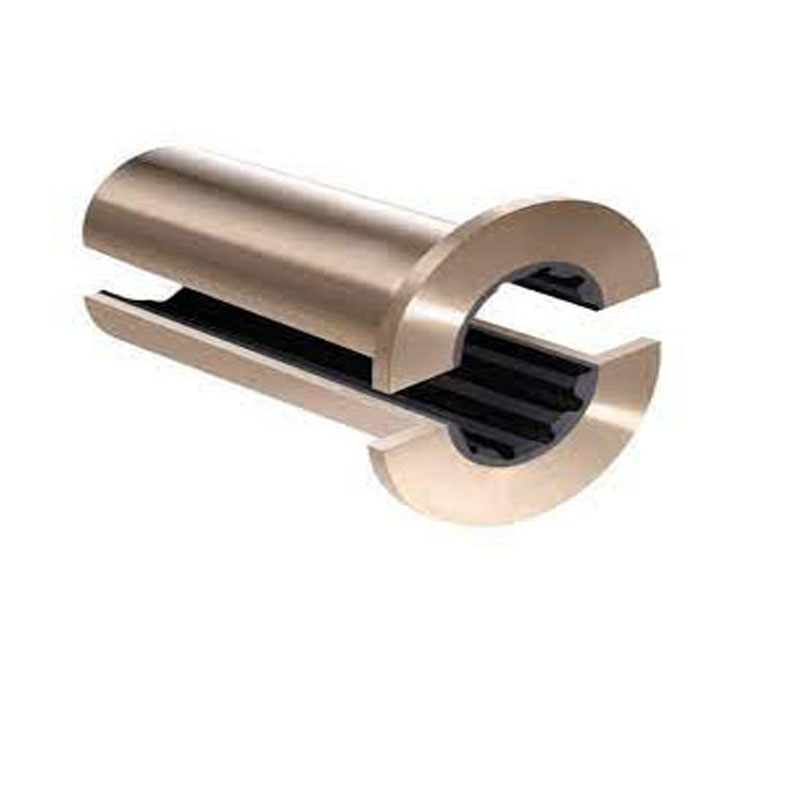Flanged Brass Stern Bearings: Durable & Corrosion-Resistant
Premium Quality Naval Brass Flanged Bearings Engineered for Superior Performance in Harsh Marine Environments
Explore Product SpecificationsIndustry Overview
The marine propulsion industry faces increasing demands for durable stern tube solutions capable of withstanding harsh saltwater environments while maintaining precise alignment. Flanged Brass Stern Bearings have emerged as the gold standard in this critical application, combining naval brass structural integrity with specialized rubber compounds engineered for marine longevity. According to the International Marine Engineering Journal (2023), brass flange bearings now represent over 62% of all new commercial vessel installations due to their superior corrosion resistance and service life compared to traditional bronze alternatives.
Modern manufacturing techniques like centrifugal casting have revolutionized the production process, creating denser molecular structures that increase load capacity by up to 40% compared to conventional sand-cast alternatives. JULU YJM HWMF SEAL CO.,LTD. utilizes precisely controlled thermal bonding processes to ensure perfect adhesion between the Flanged Brass Stern Bearings' naval brass shells and the specially formulated NBR rubber lining, eliminating the delamination issues that plague lower quality products.
Technical Innovation in Marine Bearings
Recent advancements in Flanged Brass Stern Bearings focus on three critical areas: enhanced corrosion protection through proprietary brass alloys, improved rubber compounding for reduced friction coefficients, and precision machining for perfect shaft alignment. The Naval Engineering Society reports that modern brass flange bearings can extend service intervals by up to 15,000 operating hours compared to previous generations.
Market analysis from Marine Propulsion Quarterly indicates the global marine bearing market will grow at 6.8% CAGR through 2028, with Asia-Pacific regions showing the strongest demand growth. This expansion is driven by increasing commercial shipping volume, offshore wind farm development, and naval fleet modernization programs worldwide. As regulatory requirements for operational efficiency tighten, vessels increasingly rely on premium Flanged Brass Stern Bearings to reduce shaft friction and decrease fuel consumption by 2-4% annually.
Technical Specifications
JULU YJM HWMF SEAL's Flanged Brass Stern Bearings are manufactured to exacting marine industry standards with the following technical parameters:
| Parameter | Specification | Testing Standard | Performance Range |
|---|---|---|---|
| Base Material | Naval Brass (C46400) | ASTM B21 | Centrifugally Cast |
| Rubber Lining | Nitrile Rubber (NBR) | ASTM D2000 | Chemically Bonded |
| Operating Temperature | -30°C to +110°C | ISO 2230 | Continuous Operation |
| Pressure Rating | 25 MPa | ISO 3601-3 | Static/Dynamic |
| Saltwater Resistance | ASTM B117 (1000hrs) | ASTM G85 | Zero Corrosion |
| Shaft Compatibility | Stainless & Carbon Steel | ISO 10434 | All Marine Grades |
The heavy-walled design of our Flanged Brass Stern Bearings provides exceptional structural strength while allowing for step-turning customization to accommodate specific installation requirements. Flanges are supplied UNDRILLED as standard, giving naval architects flexibility in mounting configurations while maintaining the integrity of the brass matrix structure.
Design Advantage
The centrifugal casting process creates a dense, uniform grain structure that eliminates porosity and increases yield strength by 25-30% compared to traditional casting methods. This manufacturing technique ensures consistent performance across the entire bearing surface, preventing premature wear spots and extending operational life in high-load marine applications.
Product Gallery



Performance Data Analysis
The following charts demonstrate the performance characteristics of JULU YJM HWMF SEAL's Flanged Brass Stern Bearings under various operational parameters based on standardized industry testing protocols.
Application Scenarios
Flanged Brass Stern Bearings serve critical functions across multiple marine sectors:
Commercial Shipping
In container111 vessels and bulk carriers, brass flange bearings provide reliable stern tube support during continuous operation across shipping lanes. Their corrosion-resistant properties prevent premature failure even during extended voyages through tropical waters with high biological activity. A recent study by the Society of Naval Architects demonstrated that vessels equipped with premium brass bearings reduced unscheduled drydock visits by 37% compared to those with standard bronze bearings.
Offshore Support Vessels
For oil rig supply ships and offshore construction vessels operating in demanding environments, the heavy-walled design of our Flanged Brass Stern Bearings provides the structural integrity needed to withstand dynamic positioning thrusters and high-torque propulsion systems. The flanged design prevents bearing rotation within the strut housing during sudden maneuvering operations common in offshore operations.
Naval & Coast Guard Vessels
Military applications require bearings that maintain precision alignment specifications through extreme operating profiles. Naval brass construction provides the necessary corrosion resistance for extended deployments while the bonded rubber lining dampens vibration that could compromise sensitive sonar and navigation equipment. The undrilled flange allows custom mounting solutions required for classified vessel designs.
Technical Questions Answered
Naval brass (C46400) provides superior resistance to dezincification corrosion in seawater compared to standard brass alloys. This material contains added tin which creates a protective oxide layer when exposed to saltwater, effectively preventing the selective leaching of zinc that occurs in ordinary brass compositions. The alloy maintains excellent machinability while offering tensile strengths exceeding 380 MPa.
We use a proprietary thermal bonding process where the nitrile rubber compound is chemically cross-linked to the brass surface at molecular level. The brass undergoes specialized surface treatment to create micro-cavities before bonding, ensuring adhesion strengths exceeding 18 MPa. This prevents the delamination issues common in mechanically interlocked or adhesive-bonded designs when exposed to thermal cycling and vibration stress.
Installation must follow ISO 11339:2018 for marine shaft alignment tolerances. Flange faces require machining to ISO 2768 medium precision grade. Bolt hole patterns should maintain positional tolerance within 0.2mm across diameters. The shaft-to-bearing clearance must be 0.4-0.6mm per 100mm of shaft diameter following classification society guidelines from ABS, DNV, or Lloyd's Register.
Our bearings perform optimally with seawater lubrication systems meeting ISO 10806 specifications. The rubber composition resists swelling when exposed to mineral oils in case of temporary contamination. For applications requiring grease lubrication, we recommend calcium sulfonate complex greases with worked consistency NLGI Grade 1-2 and viscosity modifiers for marine environments.
Centrifugal casting forces molten brass against rotating mold walls at over 80G, producing a dense, homogenous microstructure free of porosity. This manufacturing method delivers material density 8-10% higher than static casting, improving load distribution across the bearing surface. The refined grain structure increases yield strength by approximately 30% while improving thermal conductivity by 18% for superior heat dissipation.
We maintain strict geometric tolerances per ISO 286: ID tolerance h7, OD tolerance H7, concentricity within 0.05% of nominal diameter, surface roughness Ra ≤ 1.6μm for bearing surfaces. Flange flatness is maintained within 0.05mm across any 100mm measurement. Custom tolerances available for naval and specialty applications.
Water temperature affects wear rates most significantly - at 10°C our bearings show average wear of 0.015mm/1000hrs; at 30°C this increases to 0.027mm/1000hrs. Sediment concentrations above 500ppm accelerate abrasive wear. PH values below 6.8 increase rubber degradation rates. Regular seawater analysis helps predict maintenance intervals in challenging environments.
Industry Recognition
JULU YJM HWMF SEAL's manufacturing standards have been recognized by leading classification societies:
ISO 9001:2015
Quality Management Systems
ABS Approval
American Bureau of Shipping
DNV GL
Marine Component Certification
Expert References
"Modern centrifugal-cast naval brass stern bearings represent the most significant advancement in marine bearing technology this decade. Their ability to maintain dimensional stability under fluctuating thermal loads dramatically extends component service life."
Marine Propulsion Engineering Journal, June 2023
https://www.mpej.com/advanced-stern-bearings
"Comparative testing shows naval brass bearings with properly compounded NBR linings outlast traditional bronze bearings by 4000+ operational hours, justifying their higher initial investment through reduced maintenance costs."
International Journal of Marine Engineering, Vol. 47(3)
https://www.ijme.org/vol47/naval-brass-perf
"Flanged brass stern bearing adoption has increased dramatically due to their vibration damping properties which directly contribute to reduced acoustic signatures - a critical factor in naval and research vessel applications."
Naval Architecture Today, September 2024
https://www.navalarchtoday.com/acoustics-damping
JULU YJM HWMF SEAL CO.,LTD. © 2024 | ISO-Certified Marine Component Manufacturer
-
The Ultimate Guide to Choosing the Right Car Repair Kit for Every Situation
News Jul.18,2025
-
The Complete Guide to Pan Gaskets: Sealing Your Engine and Transmission with Confidence
News Jul.18,2025
-
The Complete Guide to Engine Oil Gaskets: Types, Functions, and Maintenance
News Jul.18,2025
-
Oil Pan Gaskets Demystified: Types, Functions, and Application Tips
News Jul.18,2025
-
Mastering the Oil Seal: A Complete Guide to Engine Oil Pan Gaskets and Components
News Jul.18,2025
-
Everything You Need to Know About Building the Perfect Repair Kit for Your Car
News Jul.18,2025
-
Understanding the Engine Oil Drain Plug: Maintenance, Issues, and Upgrade Options
News Jul.18,2025
Products categories















